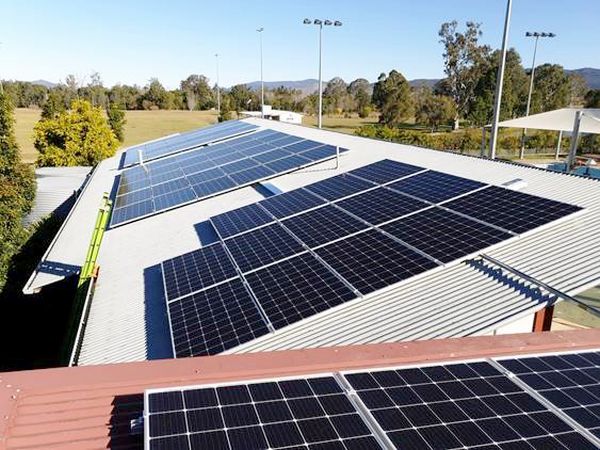Somerset Solar Concept Design Case Study
Written by Mike Fideli, Peak Services Energy Consultant
Reduction of operating expenses and improving environmental footprint forms part of Somerset Regional Council's strategy to minimise the environmental impact of operations and facilities. In a bid to reduce electricity costs and the carbon footprint of electricity consumption, council resolved to install solar power plants across several council-owned sites.

Given the complexity of undertaking the analysis to ensure the best financial outcome for council, a solar power feasibility and concept design study was identified as a need to inform the capital requirement and financial return. This type of feasibility is critical in establishing:
- site-specific system specifications
- capital outlay and financial returns and optimum payback
- suitability of the existing electrical and structural infrastructure at the proposed sites.
In 2018, council engaged Peak Services to conduct the feasibility study to initially install solar power at six sites within the Somerset region. The study identified the best-valued solution for council in terms of reducing the site’s energy consumption and size requirement of the solar plant, by considering the following:
- the full life-cycle cost of the plant to establish the business case of the project, a crucial element in supporting council to secure funding for the installations
- the electrical and structural integrity of the assets to negate any surprises during the project delivery.
This approach mitigates the risk of vendor-driven solutions as these often focus on utilising all the roof or available spaces to maximise the solar plant size - which is not necessarily the best-valued solution for the council. Vendor-driven solutions may also lead to significant variations during the project delivery due to a lack of whole-of-cost of assessment.
Pleased with the outcome and success of the study, over several years, council has continued to engage Peak to undertake solar power feasibility and concept design studies across a further 14 sites. Overall, these solar designs are estimated to save the council approximately $2.1M, aggregated over the life of the 20 solar power plants.
Council secured funding for solar installation at 11 of the sites through the Queensland Government’s Local Government Grants and Subsidies Program (LGGSP). Somerset Regional Councillor Kylee Isidro, said it was great news to obtain the funding for the project and pass on the savings to ratepayers..
“We have installed PV solar systems at 17 Somerset Regional Council buildings in recent years with joint funding under LGGSP and this project will continue our success with that program,” Cr Isidro said.
“Our consultants, Peak Services, have confirmed that Somerset ratepayers can expect to save around $2.1 million".
“We are saving costs for the community and benefiting the environment with these projects and leading by example in the community”.
All studies included structural and electrical suitability inspections to determine the condition of the existing infrastructures. Varying from site to site, the onsite inspections found:
- sites that were ready for a solar power installation without requiring any electrical or structural infrastructure upgrade
- sites had old power meters that are not compatible with solar power installations
- sites that required minor switchboard upgrades prior or together with the solar power installations.
In addition to the solar power feasibility and concept design studies, council further engaged Peak to procure and project manage the installation of the solar power plants at the majority of these sites. The implementation of the project consisted of two major phases:
- Contractor Procurement Management Services
This included all phases of procurement, starting from preparing the tender documents, administering the open market tender process, assisting council with tender evaluation as well as preparation of the contract documents including terms and conditions of the contract.
- Approvals Management and Construction Phase Project Management Services
Here, Peak acted as council’s Project Manager throughout the whole installation process; starting from ensuring all necessary approvals are obtained, through to ensuring all installations are completed as per contractual obligations are performed. During the entire installation process, Peak liaised with council regarding progress and key performance parameters.
Peak utilised its Project Management Framework (PMF) to deliver the Project. The PMF provided a consistent framework and methodology for the delivery and oversight of projects delivered by and for council.
Peak specialises in partnering with councils to provide innovative products and complementary advisory services that reduce the energy spend. If you'd like to know how your council can unlock potential energy savings through a tariff anaylsis and solar power designs, get in touch with Peak's Director Consulting Services, Brian Jackson bjackson@wearepeak.com.au or phone